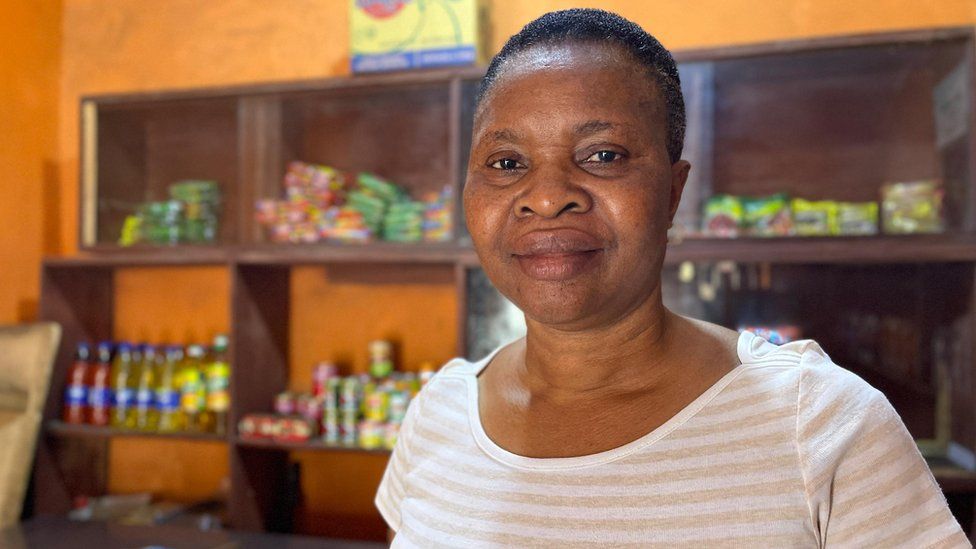-

-
-
Loading

Loading

Arinola Omolayo, the owner of a frozen food store in Lagos, Nigeria, is feeling reluctant about going to work. The reason for her unhappiness is the skyrocketing prices of food in the country. Frozen chicken, for example, now costs about 3,400 naira ($4; £3.50) per kilo, which is a 26% increase in just the past three months. As a result, customers are buying smaller quantities, and even big-time customers are purchasing less. The rise in prices is being blamed on the weakening of the Nigerian currency, the naira, which has led to an increase in inflation and foreign exchange rates. This issue is not only affecting Nigeria but also most Sub-Saharan African countries, where currencies are losing value against global trading currencies like the US dollar and the pound sterling. The World Bank has reported that Nigeria and Angola have the worst-performing currencies on the continent. The currencies of other African nations such as South Sudan, Burundi, and the Democratic Republic of Congo have also fallen significantly. This depreciation in currency value has led to a huge gap between supply and demand for foreign currencies, forcing many to resort to alternative sources like the black market. Additionally, the heavy reliance on imports in many African countries has increased the demand for foreign currencies, further reducing the value and purchasing power of local currencies. This situation, along with high transport costs and scarcity of foreign exchange, has led to increased prices for raw materials and goods, ultimately burdening the final consumer. Businesses have suffered, and investors have been deterred, as they are unable to retrieve their money in foreign currency from the central bank. Some airlines have even suspended operations due to the inability to repatriate funds. Despite being oil-producing countries, Nigeria and Angola have accumulated huge debts, leaving them with limited foreign currency reserves. These countries also heavily subsidize local fuel and energy prices, further reducing their benefit from soaring oil prices in the global market. To address the issue, Nigeria's central bank plans to inject $10 billion worth of foreign exchange into the market and has lifted the ban on several imported items to reduce demand for foreign currency. Other countries such as Ghana and Egypt have implemented alternative policies, such as using gold instead of cash to buy oil and seeking barter agreements to save foreign currency reserves. The weak local currencies have sparked discussions about the implementation of the Continental Free Trade Agreement (AfCFTA) to reduce reliance on foreign currencies and promote intra-African trade. However, to achieve this, Africa needs to strengthen productivity, competitiveness, and infrastructure, and prioritize rail and road connectivity. Ultimately, the soaring prices have had a negative impact on businesses like Arinola Omolayo's store in Lagos, where customers are becoming increasingly scarce.